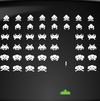Convenient private cloud with Seafile
|
Quotas
Seafile provides quota control, which lets you specify how much storage space each user has available. To make assigning quotas simple, you are advised to create a special seafile-user with limited disk space and start the service using its rights (Listing 2). This prevents server memory from filling unexpectedly if users suddenly demand a lot of storage.
Listing 2
Creating seafile-user
# create new user $ sudo useradd seafile-user # home-partition in /etc/fstab with option # "usrjquota=aquota.user,grpjquota=aquota.group,jqfmt=vfsv0" # or "usrquota,grpquota" # in root directory of monitored partition: $ sudo mount /<Mountpoint> -o remount $ sudo quotacheck -cmugv /<mountpoint> # set partition block size $ sudo tune2fs -l /<mountpoint> # soft, hard limits and grace period for # seafile-user, 0=no limit # blocks = allowable size / blocksize $ sudo edquota -u seafile-user $ sudo edquota -t # activate quota $ sudo quotaon -a # check quota $ sudo quota -u seafile-user
Encrypted Transfers
Trusting the files on your online drive to the server necessarily means being sure that they do not get diverted somewhere along the way.
As of Seafile 1.7, the desktop clients encrypt the file transfers by default with the AES-128 algorithm. However, that feature is not particularly helpful if you're lacking the graphical interface and are dependent on the command-line client.
Although the Seafile HTTP server supports HTTPS, you need Apache or Nginx as a reverse proxy server for Seahub that delivers encrypted data transfers. Relevant instructions and examples can be found on the Seafile wiki at GitHub [5].
Buy this article as PDF
Pages: 6
(incl. VAT)




